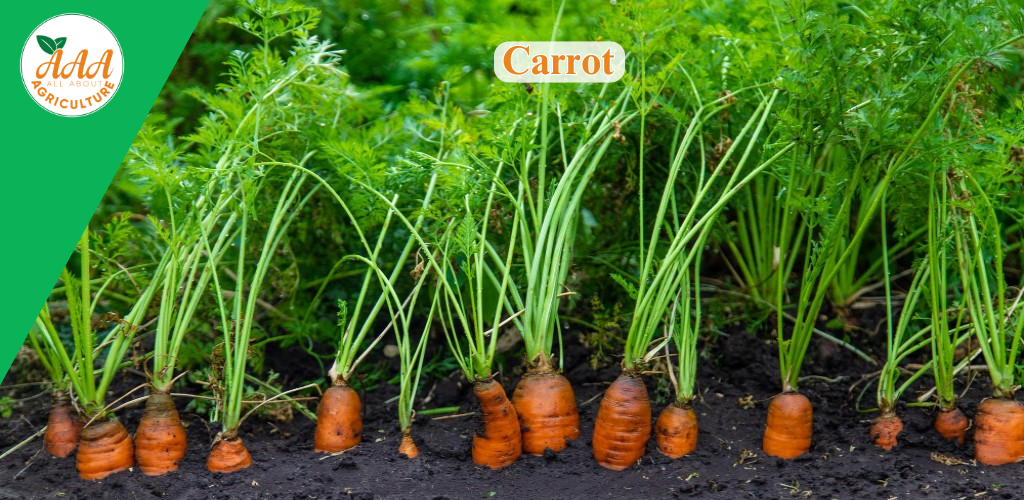Carrot Production Technology
Carrot Production Technology

Carrots are a nutrient-rich, high-value crop that thrives with precision farming, climate-smart irrigation, and AI-driven pest management. With modern technology, farmers can boost yield, improve root quality, and extend storage life, ensuring maximum profitability!
Ideal Climate & Soil Conditions
Temperature: Best growth at 15°C to 25°C. Below 10°C slows germination, while above 30°C leads to poor root formation.
Rainfall: Requires 700–1,000 mm annually, but controlled irrigation ensures better quality.
Soil: Well-drained, sandy loam soil with a pH of 6.0–7.0.
Sunlight: Prefers 6-8 hours of direct sunlight daily for uniform root development.
Seed Selection & Sowing
Hybrid & disease-resistant varieties like Nantes, Pusa Rudhira, and Kuroda.
Precision seeding with automated planters ensures uniform spacing.
Pre-sowing irrigation & moisture sensors boost germination rates.
Land Preparation & Planting
Deep plowing & fine tilth soil promote straight root growth.
Spacing: Row-to-row: 30-40 cm, Plant-to-plant: 5-10 cm for uniform root size.
Mulching with biodegradable materials conserves moisture and reduces weed growth.
Smart Irrigation & Water Management
Drip irrigation with fertigation saves 40-50% water and enhances nutrient absorption.
Soil moisture sensors & automated irrigation systems prevent overwatering.
Fertilization & Nutrient Management
🔹 NPK Requirements:
- Nitrogen (N): Supports leafy growth.
- Phosphorus (P): Enhances root development.
- Potassium (K): Improves color, taste, and shelf life.
Pest & Disease Control
Major pests: Carrot rust fly, aphids, cutworms.
Common diseases: Powdery mildew, leaf blight, root rot.
Integrated Pest Management (IPM):
Harvesting & Post-Harvest Technology
Harvesting in 90-120 days when roots reach ideal size.
Automated root washers & sorting machines ensure premium quality.
Cold storage at 0-4°C extends shelf life and prevents sprouting.